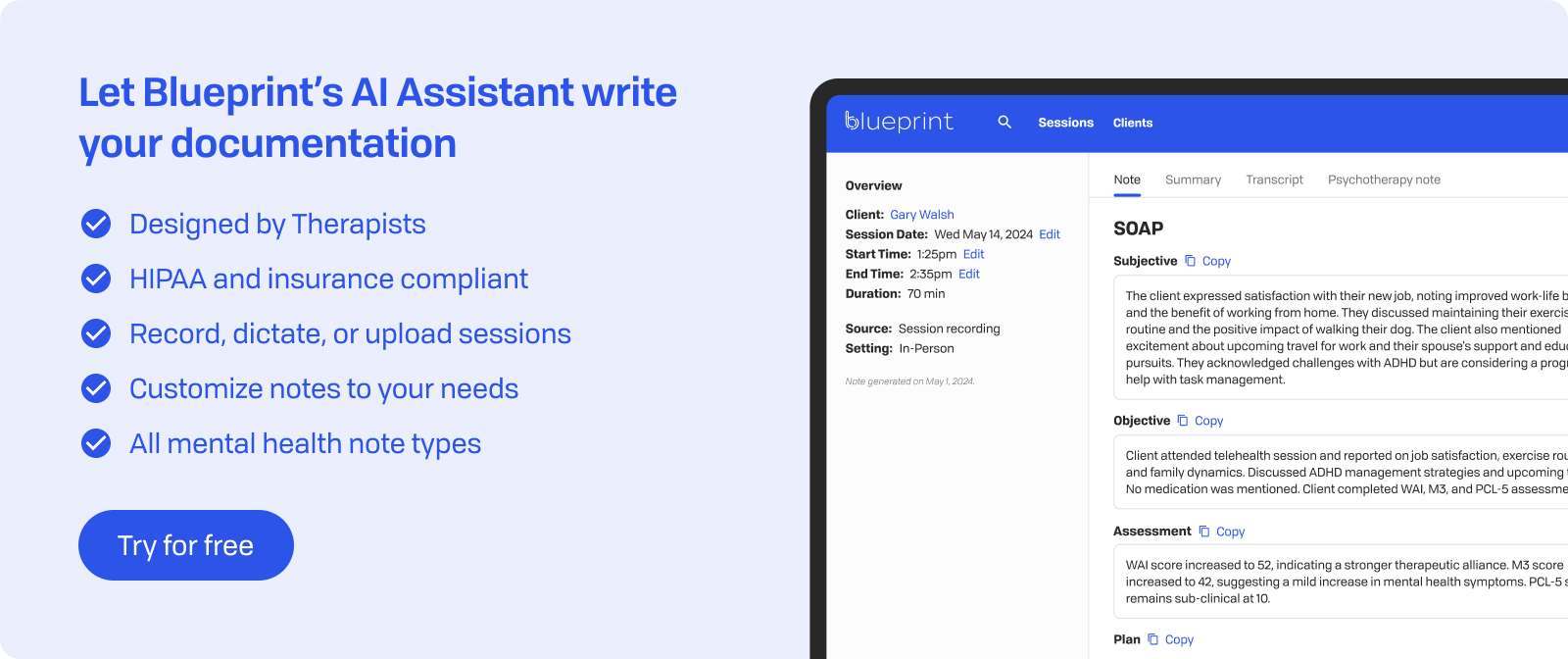In Brief
Research ethics support responsible psychological practice, extending beyond academic studies to every therapeutic interaction. Whether conducting formal research or staying informed about evidence-based treatments, knowing ethical principles shapes our approach to client care. These guidelines protect research participants and ultimately build trust and safety within therapy rooms.
The intersection of research and clinical practice presents unique ethical considerations for every therapist. We interpret assessment tools and implement evidence-based interventions, constantly translating research findings into real-world applications. This process requires a deep understanding of ethical frameworks that ensure scientific integrity and client welfare.
Exploring research ethics involves examining core principles, informed consent procedures, risk management strategies, institutional oversight, and data ethics. More importantly, it connects these research standards to daily clinical practice, showing how ethical research principles improve therapeutic relationships and outcomes.
Why Research Ethics Matter for Therapists
Research ethics protect participant well-being by respecting autonomy, beneficence, and justice. These principles ensure individuals maintain control over their participation while being protected from harm. When therapists grasp these foundations, they create safer therapeutic environments that honor client dignity and choice.
Ethical research practices ensure credibility, integrity, and replicability of findings that inform our interventions. Without rigorous ethical standards, the evidence base we rely on becomes questionable, potentially leading to ineffective or harmful treatments. This integrity allows therapists to confidently apply research-backed approaches, knowing they rest on solid ethical ground.
Public trust in mental health services heavily depends on our profession's commitment to ethical standards. Unethical researchers can damage individual reputations and the credibility of the entire field. By maintaining high ethical standards in both research and practice, therapists protect their professional standing and institutional reputation while fostering community confidence in psychological services.

Core Ethical Principles in Psychological Research
Three key ethical principles guide all psychological research, forming the foundation for protecting participants and ensuring scientific integrity. These principles directly impact clinical practice, shaping how we approach client care and treatment decisions.
- Respect for Persons: This principle emphasizes participant autonomy through voluntary, informed participation. Researchers must recognize individuals as capable of making their own decisions about participation. This includes providing clear information about study procedures, ensuring comprehension, and respecting the right to decline or withdraw. In clinical settings, this reflects our commitment to client consent, the client’s right to self-determination, and collaborative treatment planning.
- Beneficence and Non-Maleficence: Researchers must focus on increasing benefits while reducing risks and harm. This dual obligation requires careful assessment of risk-benefit ratios and implementation of safeguards to protect participant well-being. Every research design should prioritize participant welfare above scientific gains. Clinically, this principle guides our selection of evidence-based interventions and our commitment to "do no harm."
- Justice: Research benefits and burdens should be distributed fairly across diverse populations. This means avoiding exploitation of vulnerable groups while ensuring research findings apply broadly. Justice demands fair participant selection, avoiding both the exclusion of groups who might benefit and the targeting of convenient populations. In therapy, this translates to culturally responsive care and advocacy for fair access to mental health services.
These principles work together, creating an ethical framework that protects research participants while advancing psychological knowledge. Recognizing their interplay helps therapists evaluate research quality and apply findings ethically in practice.
Informed Consent, Privacy & Confidentiality
Informed consent involves ongoing communication rather than just a form signed at the beginning of a study. A good consent process explains the research purpose, procedures, risks, benefits, and participant rights in clear, accessible language tailored to each person's needs. This continuous process ensures participants understand their involvement and can withdraw at any time without facing any consequences.
Key elements of ethical informed consent include:
- Clear communication standards: Write consent materials at or below an 8th-grade reading level, avoiding technical jargon. For vulnerable populations or children, adapt language appropriately while ensuring parental permission and assent procedures meet ethical standards.
- Interactive engagement: Encourage participants to ask questions throughout the study. Use open-ended questions to verify understanding rather than simple yes/no confirmations. This dialogue helps identify and address misconceptions early.
- Privacy protection measures: Ensure that any client information obtained during the course of a study is stored securely, de-identified whenever possible, and shared only in accordance with participants’ explicit consent and applicable legal or institutional guidelines. Safeguarding confidentiality not only protects participants from harm but also fosters trust in the research process, reinforcing the integrity and credibility of the study.
- Data confidentiality protocols: Establish clear procedures for maintaining anonymity or confidentiality in data collection, storage, and reporting. Explain exactly how participant information will be protected and who will have access.
Therapists applying these principles clinically recognize that informed consent in research mirrors our intake processes in treatment. Just as research participants need ongoing opportunities to understand and consent to procedures, therapy clients require continuous conversations about treatment approaches, risks, and their right to modify or discontinue services. This connection shows how research ethics directly inform quality clinical care.

Minimizing Risk and Using Deception Ethically
Risk assessment in psychological research requires a careful evaluation of both physical and psychological harm potential. Researchers should aim to keep risks at or below what participants encounter in everyday life. This standard ensures studies don't expose individuals to unnecessary dangers while still allowing for meaningful scientific inquiry. Physical risks might include fatigue from lengthy procedures, while psychological risks could involve temporary stress from discussing difficult topics.
Deception is one of the most ethically complex aspects of psychological research. When used, it must meet strict criteria:
- Last resort methodology: Deception is only acceptable when no alternative methods can effectively answer the research question.
- Strong scientific justification: The knowledge gained must clearly outweigh any risks or discomfort to participants.
- IRB approval required: Independent ethics committees must review and approve all deceptive procedures before implementation.
- Minimal harm standard: Deception should cause no lasting physical, psychological, or social damage to participants.
When deception is used, thorough debriefing is essential. Researchers are ethically obligated to disclose the true purpose of the study, explain why deception was necessary, and address any negative reactions such as confusion, guilt, or embarrassment. Participants should also be provided with resources for managing lingering distress, if needed. Importantly, they must be given the option to withdraw their data after debriefing if they feel uncomfortable with having been deceived. This step reinforces respect for autonomy and helps maintain trust in the research process.
Vulnerable populations require additional safeguards beyond standard protections. Children, individuals with cognitive impairments, or those with reduced decision-making capacity need specialized consent procedures, enhanced monitoring, and often involvement of guardians or advocates. Research with these groups demands heightened sensitivity to power dynamics and potential exploitation risks.

Institutional Review and Oversight
Institutional Review Boards (IRBs) act as key protectors for ethical research conduct, safeguarding participant welfare while allowing scientific progress. Every federally-funded psychological research study involving human participants must go through IRB review before data collection starts, although many institutions extend this requirement to all research involving human participants, regardless of funding source. This requirement ensures an independent evaluation of ethical considerations beyond the researcher's own judgment.
The IRB review process examines several important elements:
- Risk-benefit analysis: Committees assess whether potential knowledge gains justify participant risks, ensuring studies offer favorable risk-benefit ratios.
- Informed consent procedures: IRBs closely review consent documents for clarity, completeness, and appropriate reading levels while verifying voluntary participation safeguards.
- Fair participant selection: Reviews confirm recruitment strategies avoid exploiting vulnerable populations while ensuring diverse representation.
- Data protection measures: Boards evaluate confidentiality protocols, data storage plans, and publication procedures to protect participant privacy.
- Ongoing monitoring requirements: IRBs create reporting schedules for adverse events and protocol modifications throughout the study duration. Some IRBs also require continuing review (annual or more frequent), especially for higher-risk studies, though this requirement has been relaxed under the revised Common Rule for certain minimal-risk research.
Ethics committees bring diverse perspectives through membership requirements, including scientists, non-scientists, and community representatives. This composition ensures thorough evaluation from multiple viewpoints, addressing potential issues individual researchers might overlook. Committee members receive specialized training in research ethics, regulatory compliance, and risk assessment.
IRB approval confirms that research meets federal regulations, institutional policies, and professional ethical standards. This oversight provides accountability mechanisms that protect both participants and researchers. Familiarity with IRB processes helps therapists evaluate research quality when applying findings clinically and prepares those interested in conducting practice-based research to navigate ethical review successfully.
Ethical Conduct in Data Management and Publication
Data integrity forms the backbone of trustworthy psychological research, requiring meticulous attention throughout the entire research lifecycle. Researchers must accurately collect, store, and report findings while avoiding the "big three" violations: fabrication (making up data), falsification (manipulating results), and plagiarism (claiming others' work as your own). These breaches destroy scientific credibility and can harm future patients who receive treatments based on flawed evidence.
Responsible data stewardship involves several key practices:
- Secure storage protocols: Use password-protected databases, encrypted files, and restricted access systems to protect participant confidentiality. Physical documents need locked storage with limited access.
- Accurate record-keeping: Keep detailed documentation of data collection procedures, coding decisions, and analysis steps. This transparency allows others to verify findings and builds trust in results.
- Anonymization procedures: Remove or code identifying information before analysis and publication, especially when dealing with sensitive clinical data that could harm participants if disclosed.
- Transparent error correction: When mistakes are found post-publication, promptly issue corrections or retractions. Ethical researchers prioritize accuracy over reputation, acknowledging errors strengthens rather than weakens scientific integrity.
Credit and authorship decisions should reflect actual contributions to the research. First authorship typically goes to the person who led the project and wrote the manuscript, while other authors are listed based on their substantive contributions. Gift authorship (including someone who didn't contribute) and ghost authorship (excluding someone who did) violate ethical standards.
Privacy considerations extend beyond initial data collection to how findings are shared. Even aggregated data can sometimes identify individuals in small or unique populations, requiring extra caution when publishing results from specialized clinical settings.

Translating Ethics into Clinical Practice
Research ethics principles directly shape evidence-based clinical interventions and supervision practices. The same standards that protect research participants guide our approach to client care, assessment selection, and treatment planning. Recognizing this connection enhances both our ethical reasoning and clinical effectiveness.
When supervising or consulting with colleagues, emphasize these parallel ethical considerations:
- Informed consent processes: Just as researchers must ensure participants understand study procedures, therapists need ongoing consent discussions about treatment approaches, risks, and client rights to modify or discontinue services.
- Risk-benefit analysis: Research protocols require careful evaluation of potential harm versus benefits. Similarly, clinical decisions require weighing intervention risks against expected therapeutic gains for each individual client.
- Data protection standards: Research confidentiality protocols reflect clinical privacy requirements. Both contexts require secure storage, limited access, and careful consideration when sharing information.
- Autonomy and self-determination: Research participants maintain control over their involvement, and clients direct their treatment goals and pace of change.
Encourage reflection on ethical decision-making when designing outcome studies or program evaluations in clinical settings. Consider questions like: How will we protect client confidentiality in aggregate data? What consent procedures ensure voluntary participation without coercion? How do we balance scientific rigor with clinical flexibility?
These ethical frameworks take on added importance when implementing new interventions or collecting practice-based evidence. Regular team discussions about ethical challenges help maintain high standards while advancing clinical knowledge. Integrating research ethics into daily practice strengthens professional integrity and improves client outcomes.
Key Takeaways
Research ethics in psychology rely on foundational principles rather than just following rules. Respect for individuals, doing good, and fairness create a framework that protects participants while advancing psychological knowledge. These principles directly influence clinical practice, impacting how we handle informed consent, treatment planning, and client autonomy.
Effective ethical practice involves several interconnected components:
- Ongoing informed consent: Using continuous discussions about procedures, risks, and participant rights.
- Preventive risk management: Evaluating potential harms against benefits while implementing protections for vulnerable groups.
- Independent oversight: IRB review offers accountability and diverse perspectives on ethical matters.
- Data integrity standards: Accurate data collection, secure storage, and transparent reporting build scientific credibility.
Managing data ethically covers the entire process from initial collection through publication and beyond. Researchers must avoid making up data, altering results, and copying others' work while keeping participant information confidential. Credit and authorship should match actual contributions, and any errors require quick correction.
Incorporating research ethics into clinical work creates a positive cycle. Therapists who grasp ethical research principles make better treatment decisions and contribute more effectively to evidence-based practice. This understanding enhances professional integrity, strengthens therapeutic relationships, and improves client outcomes.
Research ethics ultimately guide responsible practice. They ensure psychological knowledge progresses through methods that respect human dignity, protect vulnerable individuals, and maintain public trust. Whether conducting formal research or applying evidence-based interventions, these ethical foundations guide our commitment to benefiting those we serve while avoiding harm.











